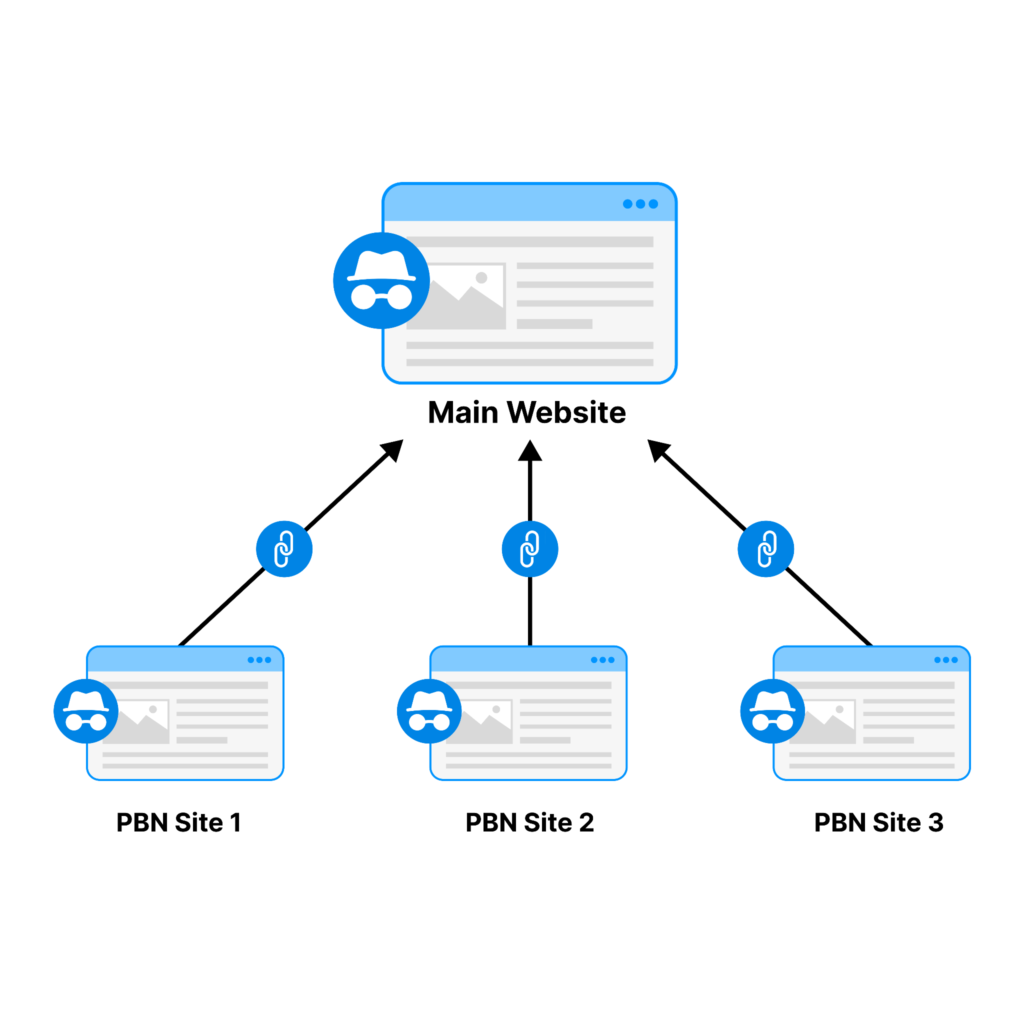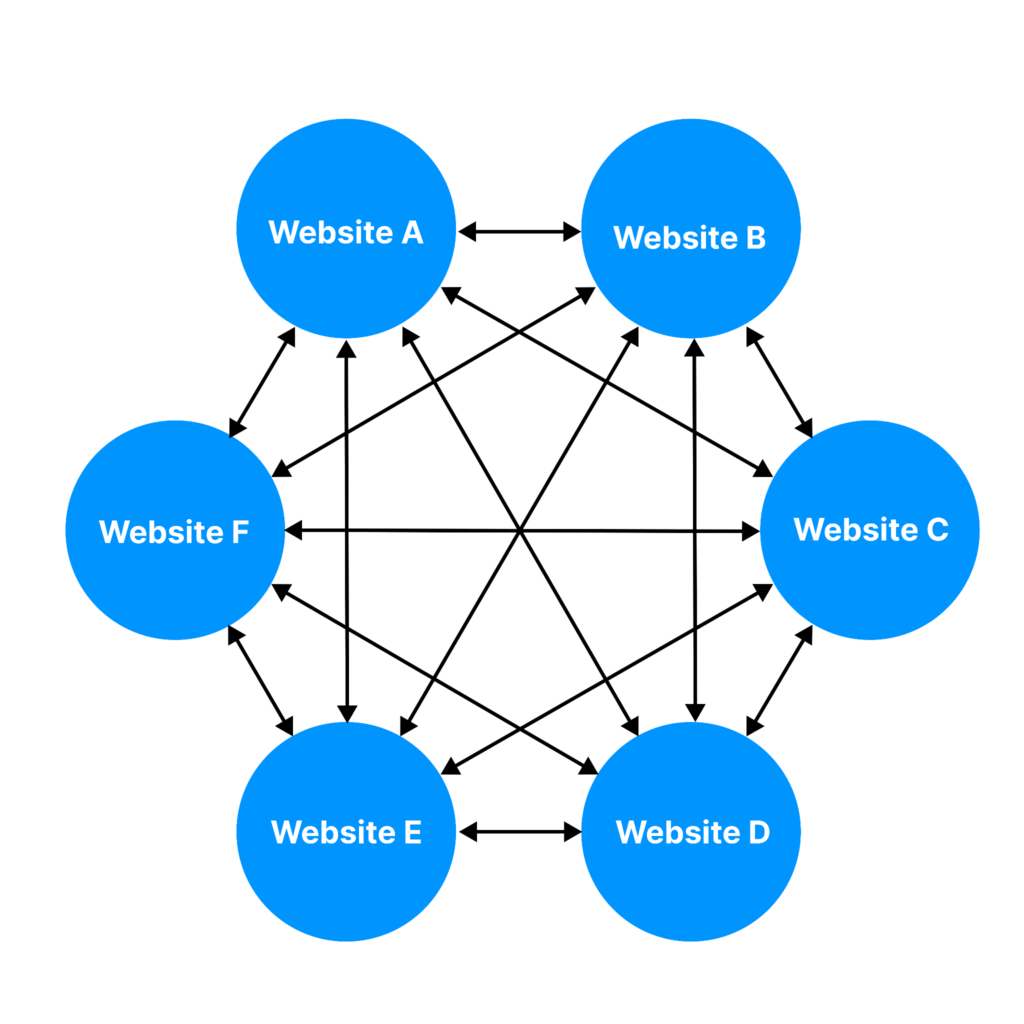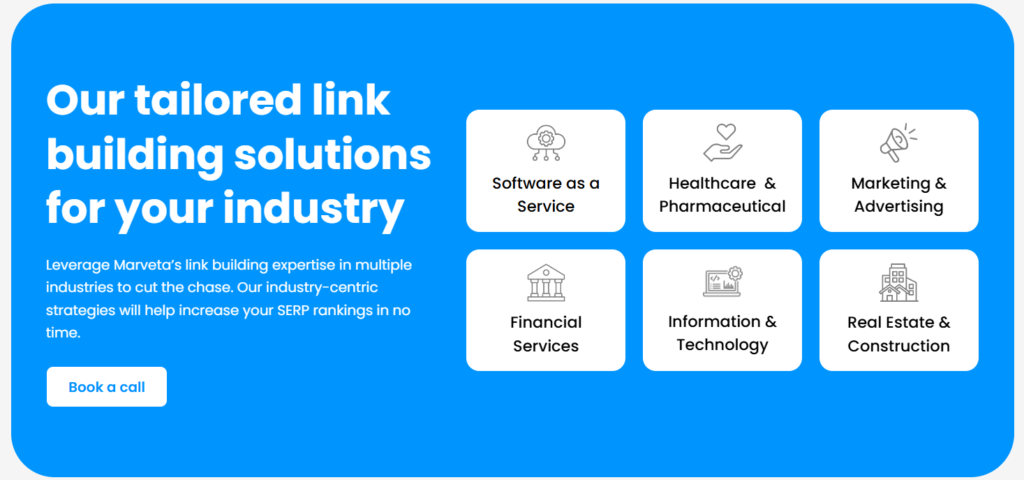How often do you come across link building services promising to rank your website for dirt-cheap prices?
They make it sound like securing good backlinks is as easy as picking domains off a spreadsheet.
But the truth is, while backlinks are essential for boosting your site’s rankings, securing high-quality, relevant links is no easy task. In fact, low-quality links can hurt your site more than help it.
Google has a strict policy against backlinks created to manipulate rankings. If flagged as spam, these links can result in penalties like traffic drops, a costly mistake for any website owner.
This makes choosing the right link building vendor a crucial decision.
Unfortunately, the $90 billion SEO industry is rife with services offering cheap deals and fast results. While some deliver real value, many rely on shady practices that can harm your website. What’s worse, these tactics often come from sites that appear legitimate, making it even harder to spot scams.
To navigate these challenges, this article will help you:
- Understand what link spam is
- Identify how link scams happen
- Spot red flags with link building service providers
- Pick the right services to secure relevant quality links
Let’s get started.
Table of Contents
ToggleWhat are spammy links?
Spammy links are low-quality links created to trick search engines. Technically, Google views any unnatural linking (such as buying, selling, or exchanging links) as spam. However, many SEO practices often fall into a grey area.
What’s crucial to consider is that purchasing links from untrustworthy services could result in backlinks from inappropriate sources, potentially flagging your site as spam in Google’s eyes.
Spammy links usually fall under these two categories:
1. Self-created spammy backlinks
These are links improperly created by you (or your link building vendor) using spammy strategies, such as excessive link exchanges, placements on link farms, content mills, PBNs, irrelevant directories, blog comments, and more.
2. Negative SEO
Competitors may occasionally attempt malicious attacks by creating harmful backlinks to your site, intending to damage your rankings. Although this is less common in 2025 due to Google’s improved algorithms, it remains a potential risk.
Understanding spammy links is the first step in safeguarding yourself from fraudulent SEO services. Let’s try to understand how Google fights link spam.
How does Google fight link spam?
Google actively combats SEO spam through advanced systems and regular updates designed to detect and penalize manipulative practices. The company identifies 40 billion spammy pages daily and takes action against them.
Here are a few key approaches it uses to fight link spam:
1. Automated detection systems
Google’s automated tools, including the SpamBrain algorithm, analyze link patterns to detect black hat SEO tactics such as excessive link exchanges, low-quality backlinks, and automated link creation. These systems automatically flag unnatural link activity.
2. Consistent algorithm updates
Google implements 500-600 algorithm updates annually, with major updates like “Core” and “Spam” updates targeting manipulative practices. For example, the June 2024 Spam Update penalized keyword stuffing, duplicate content, and backlink buying.
3. Manual review and action
Google employs Quality Raters to assess search results and provide feedback that enhances algorithm development. If flagged by automated systems, a site may undergo manual review, leading to penalties for violating Google’s spam policies.
4. AI-based algorithms
AI-based systems identify tactics like overusing exact-match anchor text, placing irrelevant links, and publishing low-quality guest posts. These tools continue to evolve, making it harder for spam tactics to influence search rankings.
5. Harmful links and the disavow tool
Google offers the Disavow tool to help site owners address spammy backlinks. This tool is particularly useful when a site faces penalties or suffers from Negative SEO attacks.
Backlink scams uncovered: How to spot and avoid them
The SEO market is flooded with questionable services looking to make a quick profit. These providers offer poor-quality backlinks that can harm your site, often masking them with high DR and other misleading metrics. Let’s take a look at the most common backlink scams.
1. Private blog networks (PBNs)
Private Blog Networks are collections of websites designed to manipulate search engine rankings by linking to a target site.
PBN owners typically purchase expired domains and populate them with low-quality content to inflate domain authority. Links from these websites will then be sold to multiple clients.
How to spot PBNs:
- High DA/DR but low organic traffic
- No legitimate business presence behind the blog
- Poor-quality or irrelevant content
- Absence of strict writing guidelines
- Lack of an editorial process; links or posts are accepted without review.

2. Link farms
Link farms, like PBNs, are networks of websites built to sell backlinks. However, link farms extensively interlink with each other to inflate their own authority artificially. Unlike genuine blogs, these sites often publish poorly written or spun content and cover various unrelated niches to appeal to more buyers.How to spot link farms:
- Covers a wide range of unrelated topics
- Excessive outgoing links on every page
- Missing or unclear author information
- Predominance of guest posts over original content
- Unprofessional or outdated website design
- Guest posts are approved with little to no review.

3. Fake guest posting
Guest posting is when you publish articles on another website with the goal of getting a backlink. This is a white-hat method. However, shady services exploit this tactic by offering guest posts on low-value, irrelevant websites, often part of PBNs or link farms.
How to spot fake guest posting scams:
- Websites lack original, valuable content and resemble directories
- Evidence of connections to PBNs or content mills
- Published articles are a part of the subdomain
- Articles are not indexed on Google, indicating poor quality or irrelevance
- Absence of an editorial process or strict writing guidelines.
Checklist for hiring a link building vendor
We know that outsourcing link building can feel overwhelming with so many options out there.
It’s important to carefully check who you’re working with to avoid scams or harmful strategies that could hurt your website in the long run.
Here’s a simple checklist to help you choose the right link building service provider.
1. Review their case studies
Most legitimate link building providers will share case studies. You must audit these case studies and verify their claims are true.
Here’s what to look for:
- Are the backlinks from legitimate and relevant websites
- Has the website’s traffic increased since their involvement
- Examine the URL traffic for pages they’ve worked on
- Use filters to identify the best-quality links in Ahrefs
- Check if keyword variations were effectively used
- Were the links built through diverse strategies, like guest posts and link insertions
- How many links were built to achieve top rankings? Compare this with competitors—if fewer links were built and still achieved rankings, that’s a good sign.
2. Review their own backlinks and content
Reputable providers often practice what they preach. Assess their website and content to determine their expertise.
- Are they publishing high-quality content on their website?
- Do they have relevant authoritative links?
- Does their website show organic traffic on tools like Ahrefs or Semrush?
3. Check the company’s reviews, ratings, and team strength
Before partnering with a company, it’s essential to vet their profile thoroughly.
Start by checking if their employees are on social media like LinkedIn. This can help you confirm whether they have dedicated team members for tasks like content creation, backlink outreach, and SEO optimization.

Many agencies promise high value upfront but outsource the work to white label link building partners. While this approach might deliver results, it often comes with higher costs.
Lastly, look for reviews on their website or platforms like Google and Clutch. This helps verify the company’s legitimacy and ensures they have a positive reputation.

4. Understand their industry experience
Not all service providers specialize in building links for every industry. If you’re looking for better results, you can ask for industry-specific case studies or check their website to see if they mention the industries they’ve worked with before reaching out. For example, our website showcases the industries we’ve collaborated with.
This can help you identify agencies experienced in your niche. This can simplify your decision-making and ensure the provider aligns with your specific business needs.

5. Look for red flags
It’s important to watch out for red flags and avoid scams when outsourcing your link building campaign. Avoid providers displaying the following warning signs:
- #1 ranking guarantee: No trustworthy link building provider will guarantee a top spot. Link building is just one part of the process.
- Cheap prices: Links that help improve your rankings aren’t cheap.
- Quick results: SEO takes time, so don’t expect instant results.
- Sharing a website list: Many vendors sell the same links to different clients. Easy-to-get links can be flagged by Google, which could harm your backlink profile. Instead, work with a company that offers custom link building solutions tailored for every client.
- Focus on domain authority: Avoid vendors who only focus on increasing your domain authority. DA can be easily improved with spammy links. Acquiring quality links naturally increases your DA and DR. Remember, the primary goal of link building is to get more traffic.
Key takeaways
Choosing the right link building provider for your business is a critical decision that requires a thorough audit. Picking the wrong vendor would put your website at risk.
Here are some key points to keep in mind:
- Securing high-quality backlinks is crucial for improving your site’s rankings. However, shortcuts like buying cheap links can result in penalties and lasting damage.
- DR and other surface-level metrics alone aren’t enough to assess a backlink. You need to evaluate the quality of the website and the keywords it ranks for.
- Be cautious of tactics like PBNs and link farms. These scams often disguise low-quality backlinks with high DR, making them difficult to detect.
- Always vet your link building provider. Look for case studies, reviews, industry experience, and clear signs of legitimacy to ensure they follow best practices.
- Watch for red flags, such as pre-curated domain lists, an overemphasis on DR, or promises of guaranteed results.
At Marveta, we understand the importance of securing valuable backlinks. Don’t hesitate to ask critical questions when evaluating us, or any service provider. We’re committed to delivering high-quality results that will help your website succeed.







